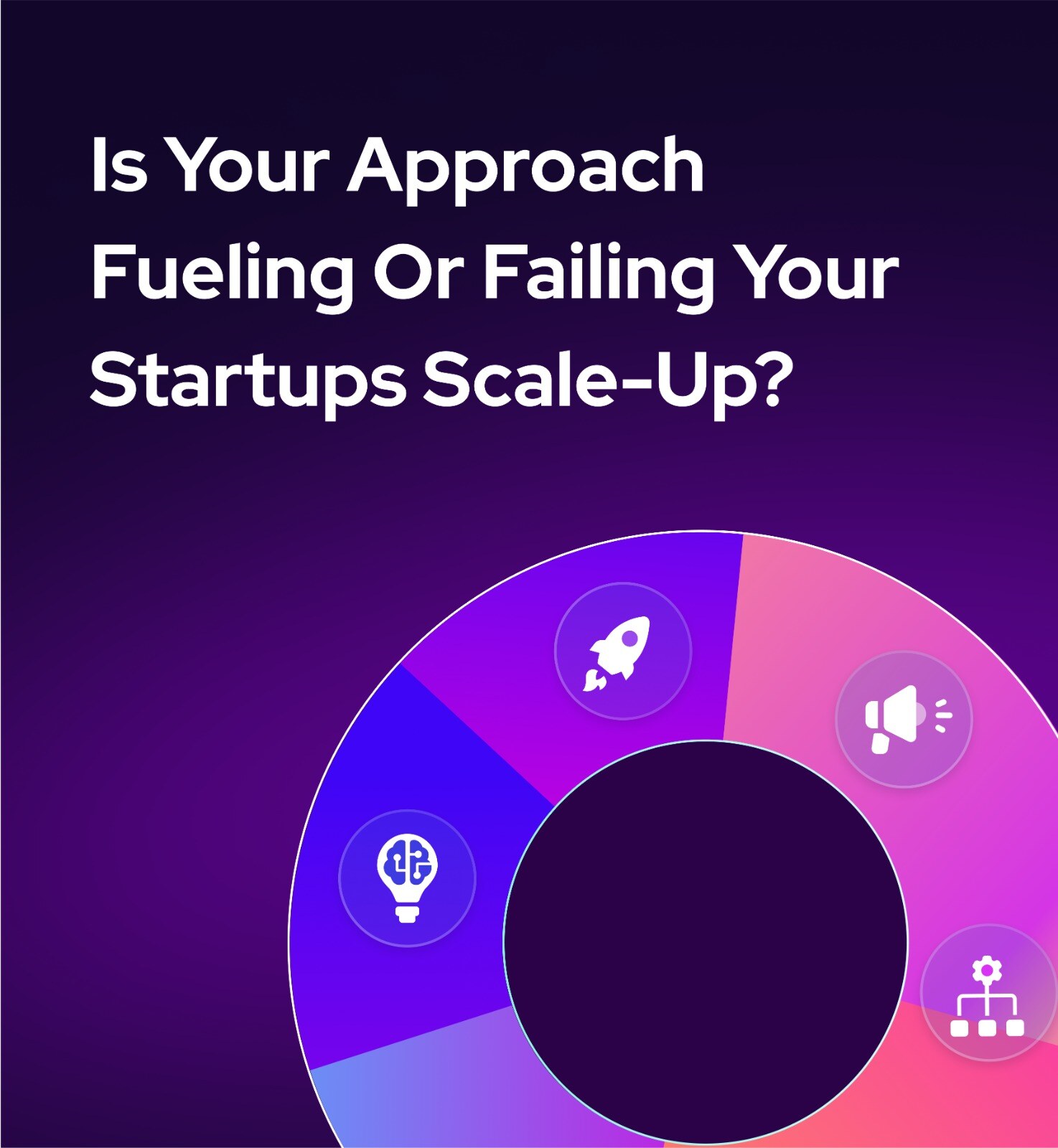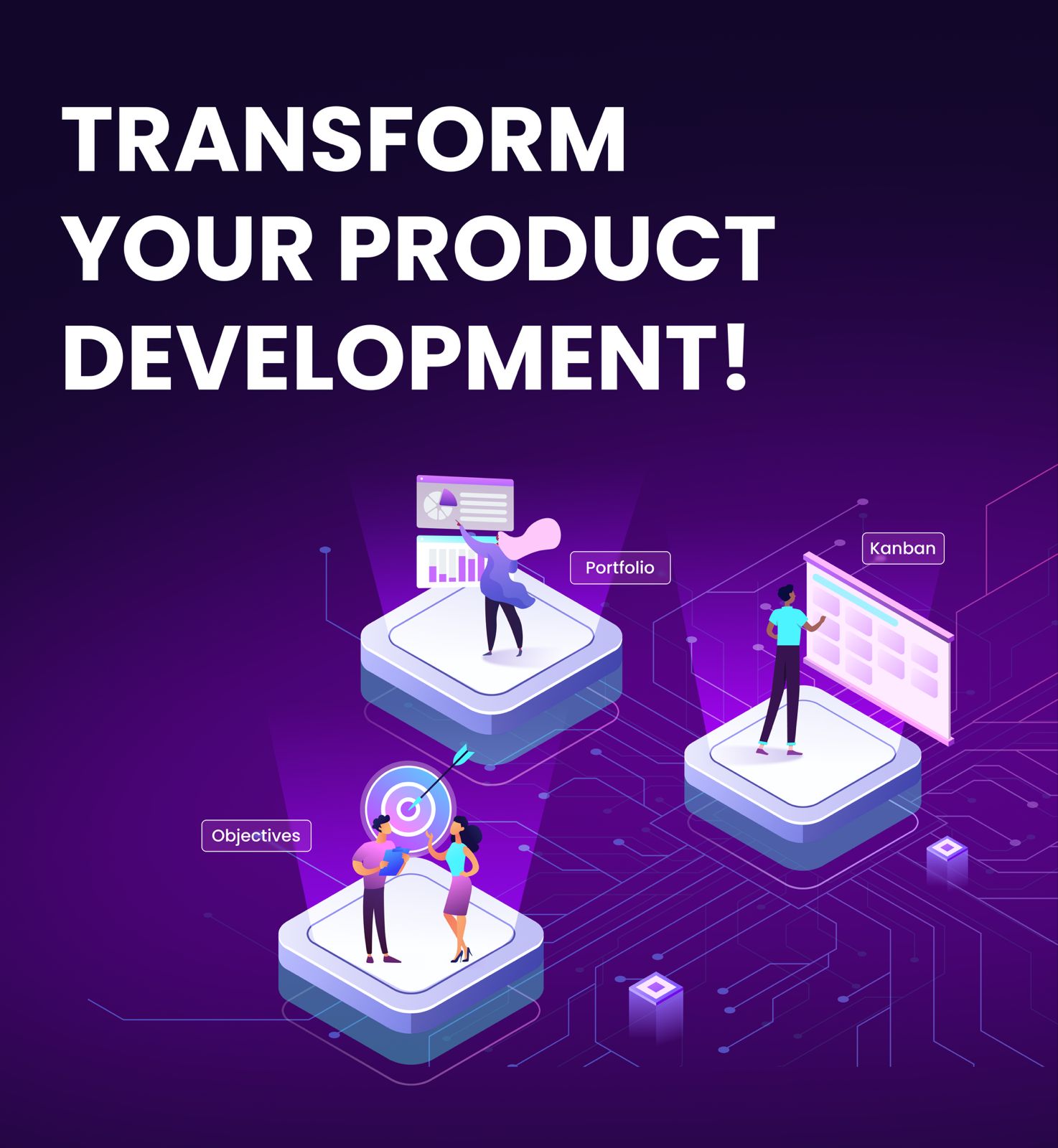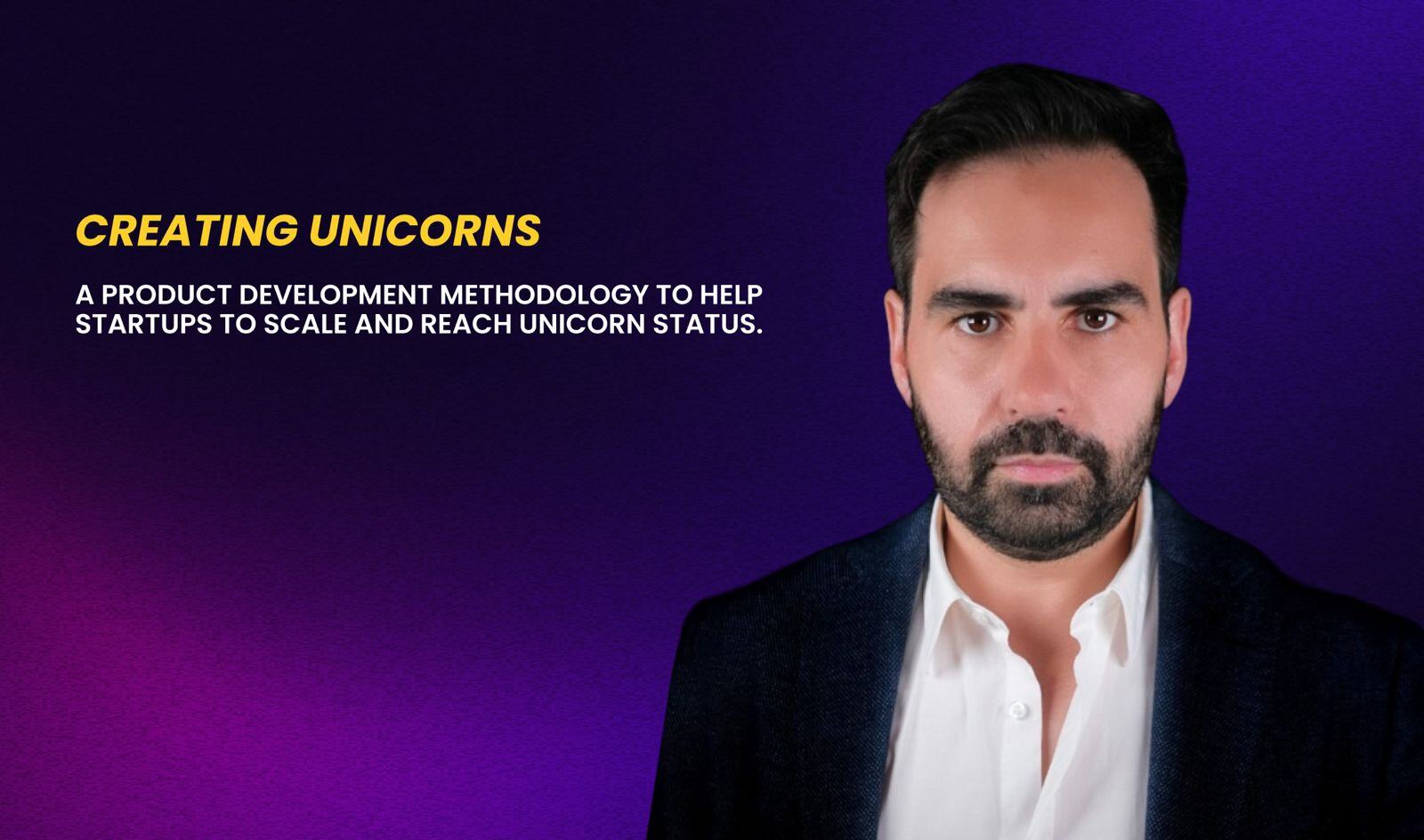Agile Strategy: Scaling Your Startup Beyond Traditional Planning
In the fast-paced world of startups, where change is the only constant, agility in strategic planning has become more crucial than ever. This article delves into the essence of agile strategy, an approach that transcends traditional strategic planning by fostering adaptability, innovation, and customer-centricity. For startups looking to scale, this methodology is not just beneficial—it's essential.
As a startup scales, the challenges it faces evolve rapidly. What worked yesterday might not work tomorrow. This is where agile strategy comes into play, offering a framework that allows startups to navigate the uncertainties of growth while remaining focused on their core objectives.
A Plan is not a Strategy for Scaling Startups
For startups aiming to scale, understanding that a plan is not a strategy is crucial. A successful scaling strategy is about making clear, actionable choices that enable your startup to excel in its chosen market segment. It's about being adaptable, continually refining your approach, and accepting the inherent uncertainty in strategic decision-making as you grow.
Often, what passes for strategic planning in startups is merely a list of growth activities. True scaling strategy, however, is about aligning these activities towards a collective goal of sustainable growth, ensuring internal coherence and a focused path to market dominance.
This underlines the importance of not just planning for expansion, such as infrastructure scaling or team growth, but strategizing for competitive outcomes in a larger market. For instance, a startup might strategize to become the go-to solution in a specific niche by making targeted operational choices: focusing on a particular technology stack, prioritizing certain features over others, or adopting a unique customer service model, all aimed at enhancing efficiency and profitability as they scale.
This approach contrasts starkly with startups that concentrate on operational aspects of scaling without a clear competitive angle. A compelling scaling strategy offers unique value to a specific segment, even as the startup grows.
For startup leaders, embracing strategic uncertainty and clearly articulating your scaling strategy's logic are crucial steps to move beyond mere growth planning and achieve sustainable success.
Unveiling Agile Strategy for Scaling Startups
In the rapid-growth environment of successful startups, where market dynamics can shift overnight, traditional strategic planning falls short. This dynamic environment demands more agile, responsive approaches to scaling strategy. Conventional approaches, often rigid and linear, struggle to keep pace with the ever-evolving startup landscape. Growing companies find themselves trapped in outdated strategies, unable to adapt quickly to unforeseen challenges and opportunities that come with scaling. This is where the concept of agility in strategic planning becomes crucial for startups.
Strategy for a scaling startup isn't encapsulated in a lengthy, static document predicting the company's next five years of growth. Rather, it's a fluid interplay of various tools operating at different organizational layers, empowering team members to make autonomous decisions and adapt flexibly as the company expands.
Strategic Decision Levels for Scaling Startups
To facilitate this agile strategic approach to scaling, several tools and methodologies have emerged. Among the most effective for growing startups are Objectives and Key Results (OKRs), strategic roadmaps, and product discovery.

Embracing OKRs for Clarity and Focus in Scaling
Objectives and Key Results (OKRs) are instrumental in agile strategy for scaling startups, providing clear, measurable goals that align with the organization's or product's growth strategy. They ensure efforts are focused on impactful outcomes rather than just scaling activities.

The introduction of OKRs into the strategic planning process has revolutionized the way startups set and pursue their scaling goals. This framework, rooted in clarity, agility, and ambition, plays a pivotal role in translating high-level growth strategies into actionable, measurable outcomes.
OKRs are not just about setting scaling goals; they are about aligning these goals with the startup's broader vision and strategic direction, ensuring that every effort contributes meaningfully to the overarching objectives of growth.
The Power of Strategic Roadmaps for Scaling Startups
While traditional plans may be rigid, strategic roadmaps in agile strategy offer a flexible guide towards achieving long-term scaling objectives, allowing for adjustments based on evolving market insights and customer feedback as the startup grows.
Product roadmaps provide a visual representation of a startup's journey towards its long-term scaling objectives. They lay out the major growth milestones and the planned path to achieve them, thereby translating strategic themes and OKRs into tangible steps for expansion. However, unlike traditional long-term plans, these roadmaps are designed with inherent flexibility. This adaptability is crucial for two reasons in a scaling startup.
First, it allows growing organizations to respond swiftly to changes in the external environment without losing sight of their long-term scaling goals. Second, it accommodates short-term operational needs that may arise unexpectedly during rapid growth. This dual focus ensures that while the startup is steadfast in pursuing its long-term vision, it remains nimble enough to tackle immediate scaling challenges or capitalize on unforeseen growth opportunities.
Leveraging Product Discovery in Scaling
Product discovery is a continuous process that keeps scaling strategies aligned with customer needs. It involves iterative testing, learning, and refining to ensure products and services meet market demands, even as the startup expands its reach.
By placing customers at the center of strategic planning for growth, startups ensure that their scaling decisions are not based on mere speculation but on real insights about what customers truly value in a larger market.
Product discovery is inherently iterative, which is particularly valuable for scaling startups. It is not a one-time exercise but a continuous process of learning, experimenting, and adapting. This iterative nature is what makes it particularly effective in reducing strategic uncertainty during growth phases.
Through ongoing cycles of hypothesis, experimentation, feedback, and learning, startups can continuously refine their scaling strategies. This process allows teams to test their assumptions quickly, learn from both successes and failures, and adapt their approach accordingly. It embraces the principle that not all scaling strategies will work as planned and that failure is an integral part of the learning process in growth.
Integrating OKRs, Roadmaps, and Product Discovery for Scaling Success
The integration of Objectives and Key Results, product roadmaps, and product discovery creates a powerful, cohesive framework for agile strategic planning in scaling startups. This synergy amplifies the strengths of each approach, paving the way for a dynamic and responsive strategy execution as the company grows.
Creating a Cohesive Strategic Framework for Scaling
Integrating OKRs, roadmaps, and product discovery begins with understanding how each component complements the others in a scaling context:
- OKRs as the Driving Force for Growth: OKRs set the direction and priorities for the scaling startup, defining clear, measurable goals aligned with the overall growth strategy. They create a focus on outcomes rather than just scaling activities, ensuring that efforts are strategically aligned and results-oriented.
- Strategic Roadmaps as the Scaling Pathway: Roadmaps translate OKRs into a visual journey of growth, outlining the steps required to achieve these scaling objectives. They provide a longer-term perspective, showing how short-term actions contribute to the realization of long-term growth goals, and they allow for agility in adapting to changes and new insights during expansion.
- Product Discovery as the Scaling Feedback Loop: Integrating product discovery ensures that both OKRs and roadmaps are grounded in real-world customer needs and market dynamics as the startup scales. It provides continuous feedback, enabling growing businesses to refine their strategies based on actual customer behaviors and emerging trends in larger markets.
The integration of these tools creates a strategic framework that is both forward-looking and adaptable for scaling startups. It ensures that the organization remains focused on its strategic growth objectives while being flexible enough to adjust to new information and market shifts that come with expansion.
Conclusion
"Agile Strategy: Scaling Your Startup Beyond Traditional Planning" underscores the shift from static, long-term planning to a more dynamic, iterative approach that can adapt to the fast-paced changes in the market, which is crucial for scaling startups.
Embracing the principles of agile strategy ensures that scaling startups can remain competitive, resilient, and aligned with customer needs, driving sustained growth and success in an ever-evolving world.
Agile Strategy FAQ
What is agile strategy for scaling startups?
Agile strategy is an approach that transcends traditional strategic planning by fostering adaptability, innovation, and customer-centricity. Unlike conventional rigid planning, it enables startups to navigate uncertainties while scaling by providing frameworks that are dynamic and responsive to rapidly changing market conditions.
How does agile strategy differ from traditional planning?
Traditional planning tends to be rigid and linear, often resulting in static documents predicting years of growth. Agile strategy, by contrast, is fluid and responsive, using various tools at different organizational layers that empower team members to make autonomous decisions and adapt flexibly as the company expands.
Why isn't a plan the same as a strategy for scaling startups?
A plan is typically just a list of growth activities, while a true scaling strategy involves making clear, actionable choices that enable your startup to excel in its chosen market segment. Strategy aligns activities toward sustainable growth, ensuring internal coherence and a focused path to market dominance with a competitive angle.
What are the key components of an agile strategy framework?
The key components include Objectives and Key Results (OKRs) for clarity and focus, strategic roadmaps that provide flexible guides toward long-term objectives, and product discovery processes that ensure alignment with customer needs through iterative testing, learning, and refining.
How do OKRs contribute to scaling success?
OKRs provide clear, measurable goals that align with the organization's growth strategy. They act as the driving force for growth by creating focus on outcomes rather than just scaling activities, ensuring efforts are strategically aligned and results-oriented as the startup expands.
What role do strategic roadmaps play in agile strategy?
Strategic roadmaps translate high-level strategies into visual journeys of growth, outlining steps to achieve scaling objectives. Unlike traditional plans, they maintain flexibility, allowing startups to respond to market changes while keeping sight of long-term goals and accommodating unexpected operational needs during rapid growth.
How does product discovery support scaling decisions?
Product discovery keeps scaling strategies aligned with customer needs through continuous cycles of hypothesis, experimentation, feedback, and learning. This ensures scaling decisions are based on real customer insights rather than speculation, allowing startups to test assumptions quickly and adapt their growth approach accordingly.
How do you integrate these components for maximum effectiveness?
Integration creates a cohesive framework where OKRs set direction and priorities, roadmaps translate these into visual growth pathways, and product discovery provides continuous feedback. This ensures that the organization remains focused on strategic growth objectives while being flexible enough to adjust to new information and market shifts during expansion.
Disclaimer
This blog post was initially generated using Inno Venture AI, an advanced artificial intelligence engine designed to support digital product development processes. Our internal team has subsequently reviewed and refined the content to ensure accuracy, relevance, and alignment with our company's expertise.
Inno Venture AI is a cutting-edge AI solution that enhances various aspects of the product development lifecycle, including intelligent assistance, predictive analytics, process optimization, and strategic planning support. It is specifically tailored to work with key methodologies such as ADAPT Methodology® and Scaleup Methodology, making it a valuable tool for startups and established companies alike.
Inno Venture AI is currently in development and will soon be available to the public. It will offer features such as intelligent product dashboards, AI-enhanced road mapping, smart task prioritization, and automated reporting and insights. If you're interested in being among the first to access this powerful AI engine, you can register your interest at https://innoventureai.com/

Take The Test

Sign Up
You May Also Like
These Related Stories

Financial Strategy For Scaling Startups: The 5-Stage FUND Framework

5 Critical OKR Disadvantages Scaling Startups Must Overcome


